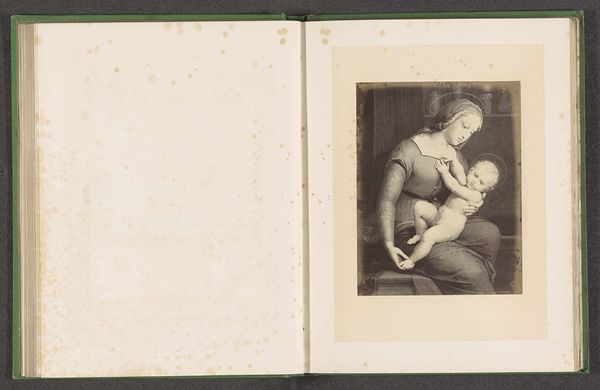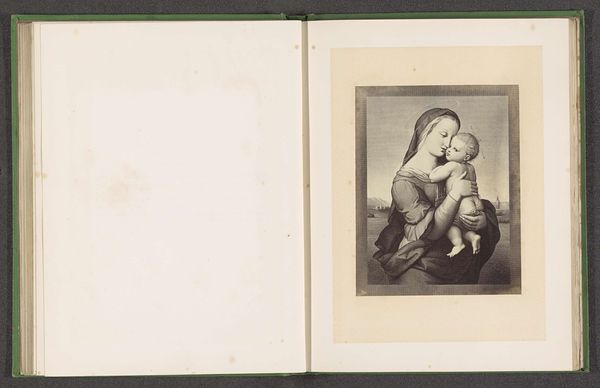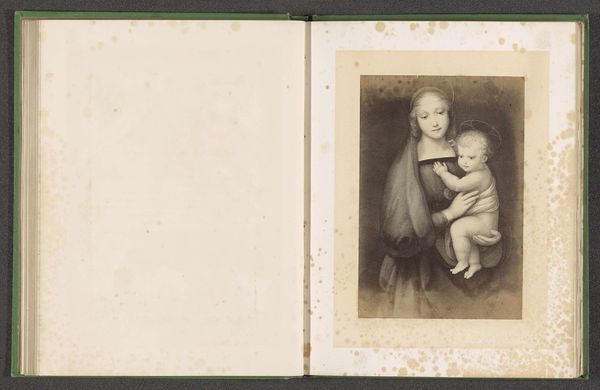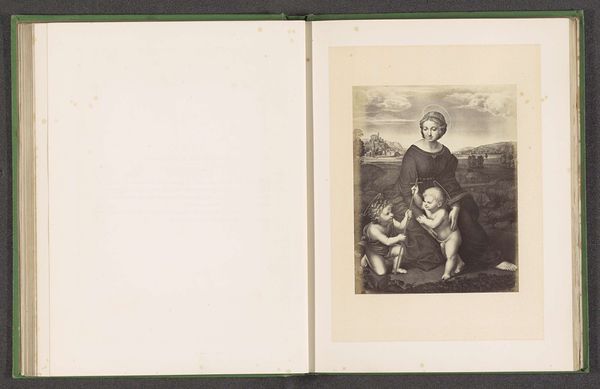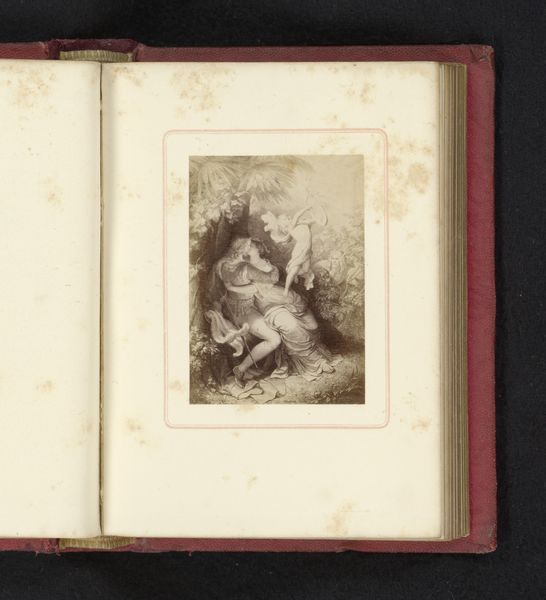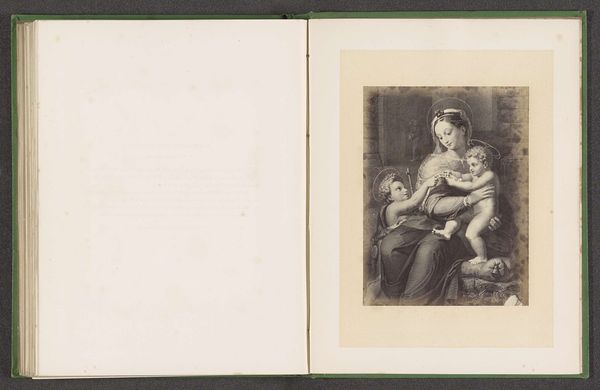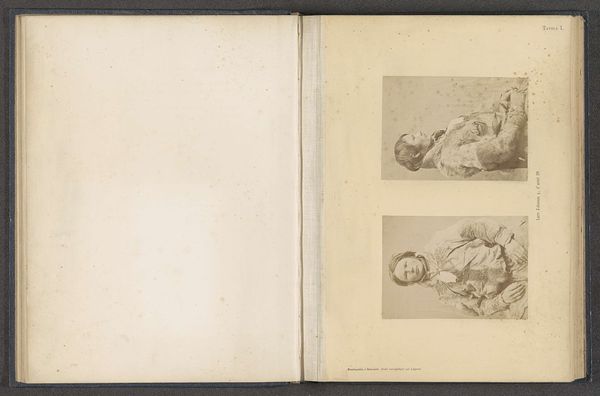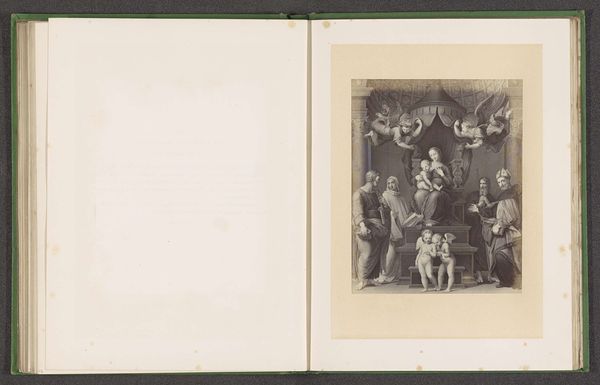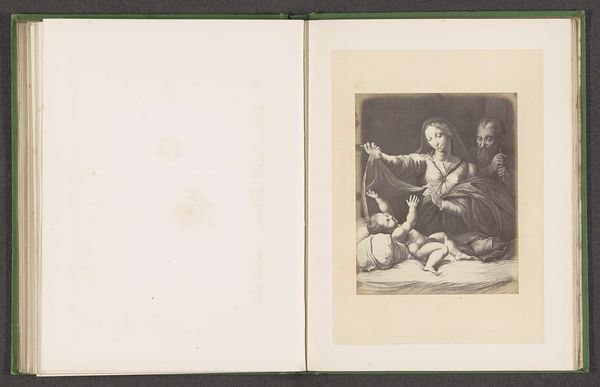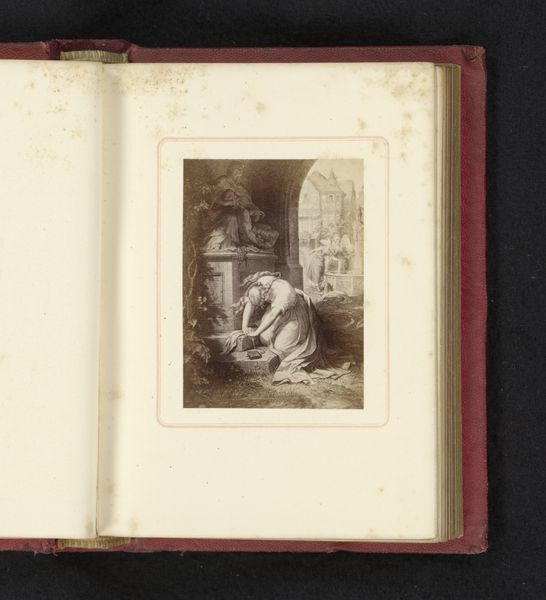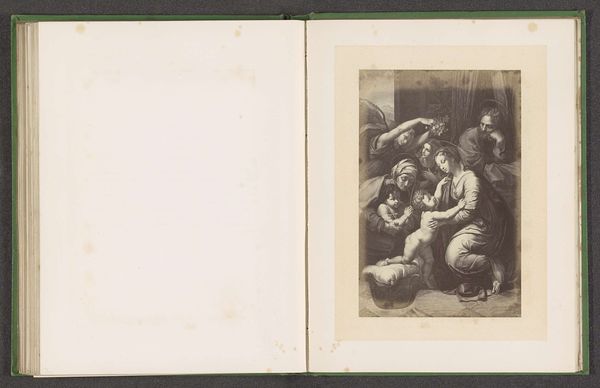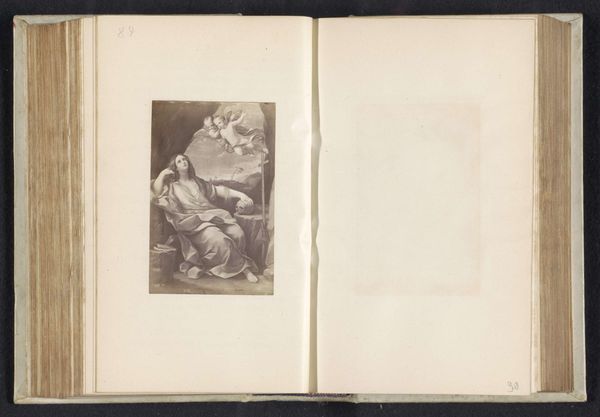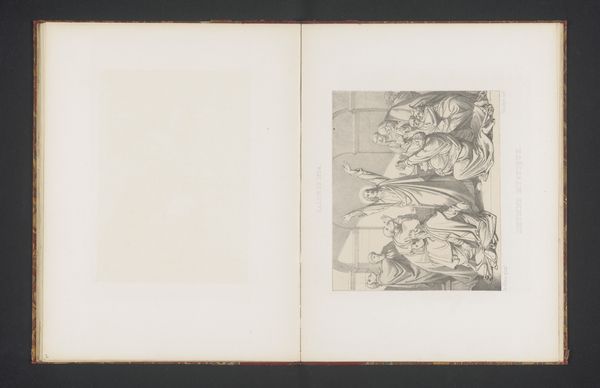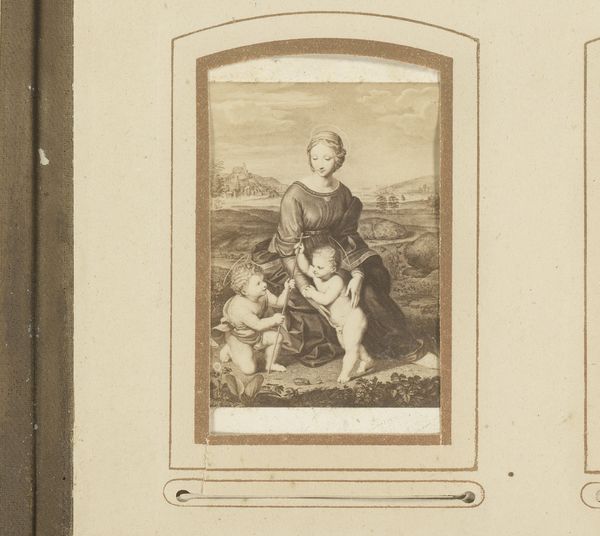
Fotoreproductie van een prent door A. Hoffmann van een Maria met Kind door Rafaël before 1869
0:00
0:00
print, photography
#
portrait
# print
#
figuration
#
11_renaissance
#
photography
#
history-painting
#
italian-renaissance
Dimensions: height 159 mm, width 128 mm
Copyright: Rijks Museum: Open Domain
Editor: This is a photographic reproduction, made before 1869, of a print by A. Hoffmann, showing Raphael’s "Madonna and Child." It’s… interesting seeing it as a photo of a print, layered like that. What strikes me is how contained the figures seem, like they're sharing a secret. What do you see in this image? Curator: I see the echo of centuries of devotional imagery, the weight of cultural memory pressing down on this reproduction. Look at how Raphael, and then Hoffmann after him, presents Mary: she embodies both regal composure and maternal tenderness, a duality reinforced through visual cues like the delicate draping of her robe against the soft curve of her arm supporting the child. What about the other figures present alongside Mary? Editor: They seem to be witnesses, perhaps adding a sense of community to the scene? Almost like silent protectors. Curator: Exactly. Their inclusion alludes to a shared belief, a communal upholding of this central iconic image. It’s also crucial to consider the material transformation. The original painting is translated into a print, then photographed. With each iteration, what aspects are retained, and what are lost? What do these visual layers tell us about the changing relationship between art, faith, and technology? Editor: So it's not just about the image itself, but how its meaning shifts each time it's reproduced. It’s a reminder that cultural images transform constantly. Curator: Precisely. The continued re-presentation is a testament to how we consistently interpret, redefine, and ultimately revere certain visual motifs across generations. This offers us insight into which enduring ideals or stories connect societies through centuries. Editor: I hadn't considered that. Thanks for opening my eyes to these enduring interpretations.
Comments
No comments
Be the first to comment and join the conversation on the ultimate creative platform.
